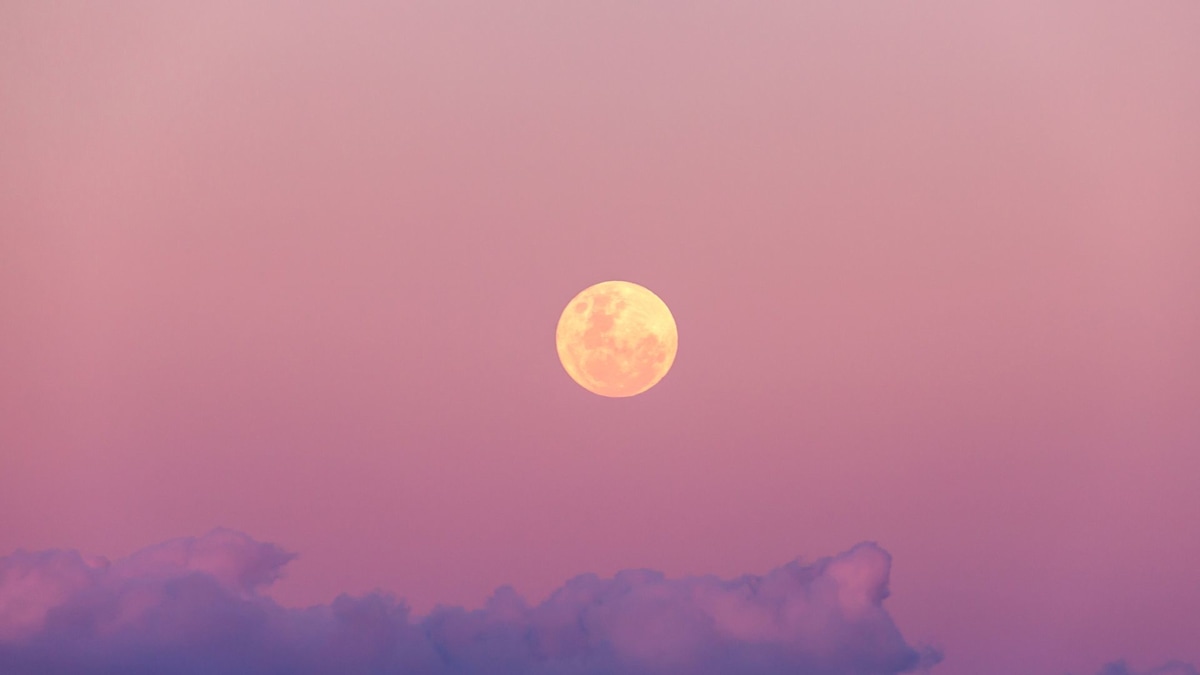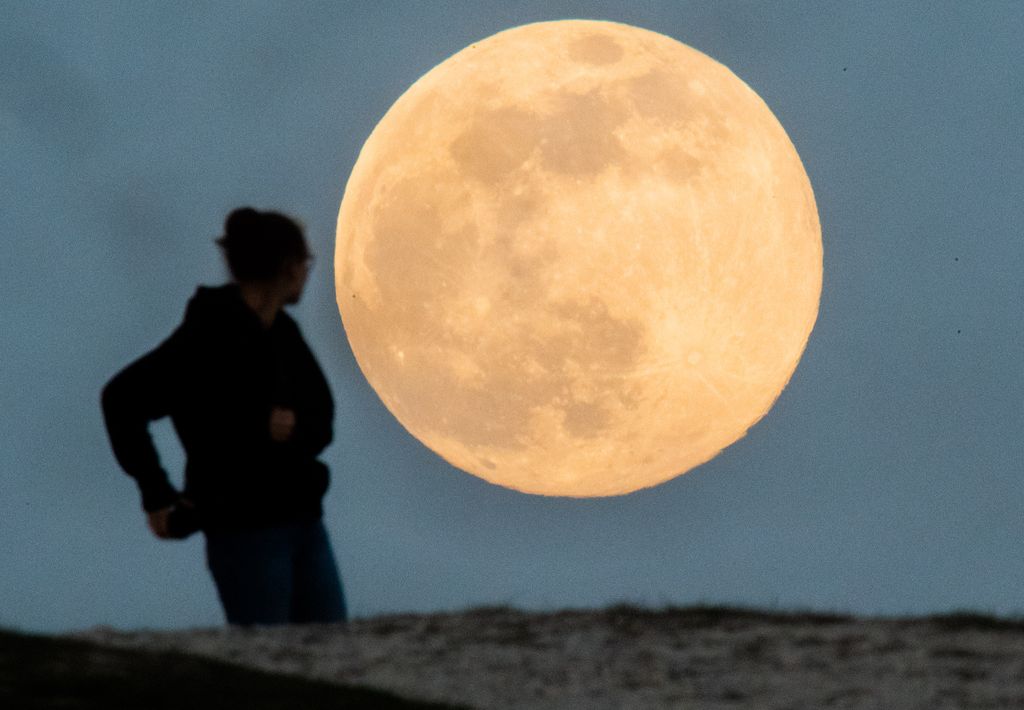If you’ve found yourself staring at the ceiling at 3am a little longer than usual lately, you’re not alone. As April’s full moon, affectionately known as the Pink Moon, begins to rise, many are already noticing shifts in their sleep patterns and mood. And according to sleep experts, there might be something to it.
Google has seen a staggering 767 percent increase in searches for “Pink Moon + Sleep” in the past week alone, and it’s no surprise. The enchanting Pink Moon, which will peak at 8:22pm EST on April 12 in the US and 1:22am BST on April 13 in the UK, carries with it more than just celestial beauty. Sleep expert Martin Seeley reveals how this springtime lunar moment could affect your rest—and what you can do to find calm beneath the moonlight.
The name Pink Moon might suggest a rosy-hued orb in the sky, but in reality, its origins are a little more poetic.
The title comes from the blooming of wild moss phlox, a vibrant pink flower native to North America that typically bursts into bloom in April. Like the blossoms it’s named after, the Pink Moon symbolizes growth, new beginnings, and renewal. And while its light is undeniably magical, it can also throw our bodies off balance.
“People often underestimate the moon’s influence,” says Martin. “But studies and anecdotal experiences alike suggest it can impact our hormone levels, sleep quality, and emotional state.”
One of the primary culprits is melatonin—the hormone often referred to as our body’s natural lullaby. It’s released when darkness falls, helping signal to the brain that it’s time to wind down. But the brightness of a full moon can interfere with this cycle, especially if you’re in an area with minimal light pollution. As Martin explains, “That extra glow can trick your brain into thinking it’s still daylight, which may delay melatonin production, making it harder to fall and stay asleep.”
The consequences ripple from there. Low melatonin levels often lead to disrupted deep sleep, which in turn raises levels of cortisol, the stress hormone. “It can create a frustrating loop,” Martin notes. “You’re tired, but your body feels alert and stressed. Then you sleep poorly again, and the cycle continues.”
Hormones like progesterone and serotonin also come into play. Lower progesterone levels, which can already cause sleep difficulties, may feel even more disruptive during the Pink Moon. Serotonin—the so-called ‘feel-good’ hormone—can dip when sleep is compromised, potentially leading to emotional lows, irritability, or just a general sense of being off balance.
So what can you do to drift peacefully to sleep, even under a bright full moon?
“Start with your environment,” Martin advises. “Small changes like blackout curtains or a sleep mask can make a significant difference. Dim your lights as you wind down and avoid screens at least an hour before bed. Creating a calming routine is one of the most effective ways to support healthy sleep.”
He also recommends gentle practices like yoga or meditation, especially during the days leading up to and following a full moon. “These techniques help regulate cortisol levels and allow your body to settle into rest more naturally,” he says.
Hydration, too, can play an unexpectedly important role. “Staying hydrated helps regulate your body temperature and mood,” Martin adds. “It supports brain function, which is essential when emotions are heightened.”
Despite its challenges, the Pink Moon also brings some benefits. For many, it’s a time of heightened awareness and renewed energy. “People often feel more connected to nature, their bodies, and even their goals during this moon,” says Martin.”It can be a powerful moment for introspection and self-care.”
If you find yourself feeling unusually sensitive or emotionally raw during this time, know that it’s completely normal. For those already struggling with sleep or stress, the moon can feel like the tipping point—but it can also be an opportunity to pause and reset.
And if sleeplessness becomes a recurring problem, Martin encourages seeking support from a medical professional. “Sometimes a little extra guidance is exactly what we need,” he says. “There’s no shame in asking for help to feel your best.”
So if you’re tossing and turning this weekend, try not to fight it. Light a candle, breathe deeply, sip a cup of calming tea, and remember you’re not alone. The Pink Moon, with all its energy and brilliance, is a reminder that even our restlessness can be part of a greater cycle—one of growth, change, and renewal.
As Martin puts it: “The moon might wake you up, but it’s also inviting you to reconnect with yourself.”
Read the full article here








